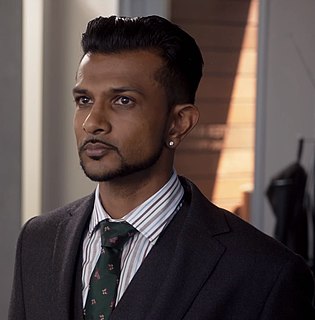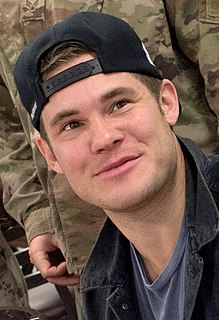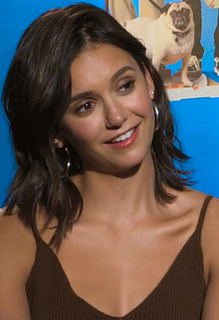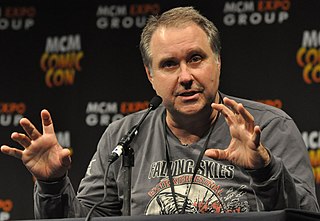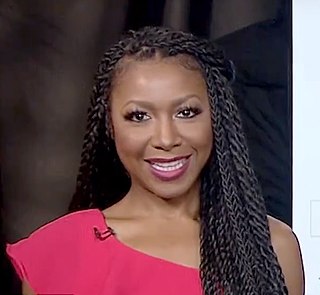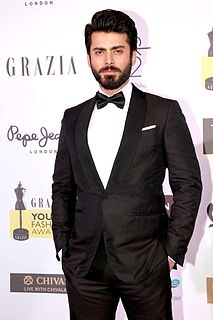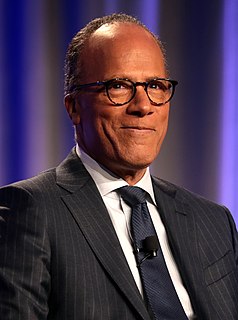A Quote by Utkarsh Ambudkar
It just so happened that my agent called and said, 'There's this movie 'Pitch Perfect.' Here are the sides.' I think I originally read for Bumper, because Donald didn't have much in the script, so I read all Bumper's lines. I beatboxed for them, because that's what my character was supposed to do. And then I was like, 'By the way, I rap.'
Related Quotes
It wasn't exactly a cattle call. I had an agent, and they were seeing people for the parts, so my agent said, "Here's the script, see if there's anything that speaks to you." And I did, and I called my agent and said, "I think this character Data is kind of interesting," and she said, "Well, okay, I'll get you the appointment with Junie Lowry." I had to read with the casting agent first, 'cause nobody really knew me then. Then after that, I had, I think, six different auditions for the role. And finally it was me [on Star Trek].
I read the 'Twilight' books before the movie and the whole craze happened. And then I loved it. I was in love with Edward before every other girl that says she's in love with him was. Because I read them a long time ago shooting a movie in Salt Lake City, and one of Stephenie Meyer's friends said, 'Make sure you read my friend's book.'
I'm not saying that I'm the grand genius that came in on a float and made it happen, but they liked my pitch. I was on my way to a camping trip with my daughter when my agent called and said, "This thing came up and it's really wild and crazy, do you want to read it?" And, I said, "Yeah, why don't you just send it to me? But, I'm going on this camping trip, so I probably won't be able to read it until I get back."
A lot of actors choose parts by the scripts, but I don't trust reading the scripts that much. I try to get some friends together and read a script aloud. Sometimes I read scripts and record them and play them back to see if there's a movie. It's very evocative; it's like a first cut because you hear 'She walked to the door,' and you visualize all these things. 'She opens the door' . . . because you read the stage directions, too.
[Trey Parker and Matt Stone]called me one Saturday morning and said, "Can you do an impression of Conan O'Brien?" And I said, "I don't know." Because that was really... He hadn't been on the air that long, and to be honest, I hadn't watched much of him at that point. So I went to Santa Monica to their studio and said, "Well, what does he sound like?" They said, "Well, just try it one time. Read the copy." And I read the copy one time, and they went, "Okay, that's fine. Thanks a lot, that'll do. That's perfect."
I think Memento movie was hard because people didn't get it, they just didn't understand it. Not from the stage when we read the script and liked it. It's sort of a famous story now how we finished the movie and showed it to distributors and nobody wanted it. So it wasn't just they didn't get the script, they really didn't even understand the movie when it was done. But I think that was a particularly hard one. I don't think it was harder because we were girls, but I do think obviously there are particular challenges to working in a male-dominated industry.
All modesty aside, I think I'm good at reading scripts. The way I read a script is as fast as I can, all in one sitting, and I don't read many of the stage directions. I only read enough stage directions to let me know where I am, because they're always so verbose and mostly horseshit. So I only read the dialogue, which allows me to see the movie in my mind's eye in real time.
There's no experience like going down an empty freeway toward a hurricane and then looking in the opposite lane and seeing bumper-to-bumper traffic, people fleeing that scene. Or going to a toxic spill and seeing people go the other way. You talk yourself into thinking you're invincible in order to do that.
